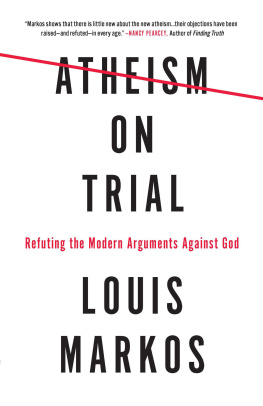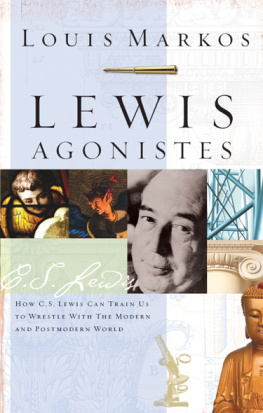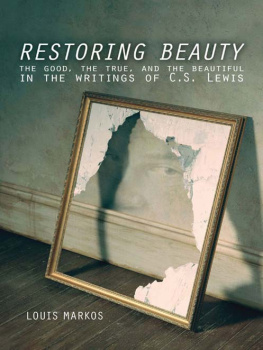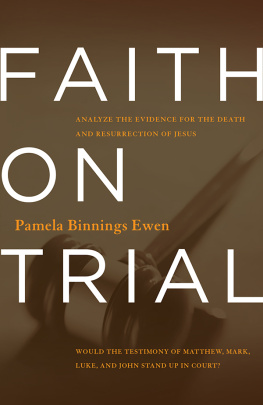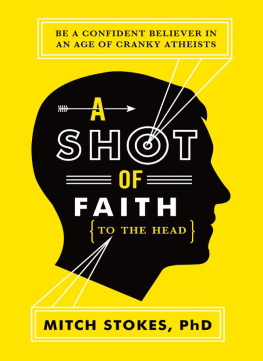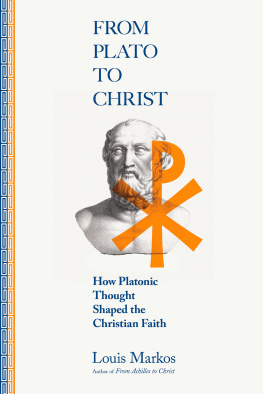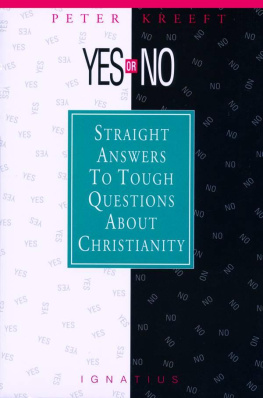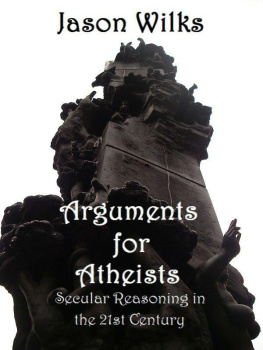Chapter One
In this chapter, and in several others, I highlight the work of the Pre-Socratic philosophers, a group of Greek thinkers from around the Mediterranean world who flourished from 600 to 400 BC. The main figures in the group are Thales, Anaximander, Anaximenes, Xenophanes, Heraclitus, Parmenides, Zeno, Pythagoras, Empedocles, Anaxagoras, Leucippus, and Democritus. Although Pythagoras and Parmenides remained open to the supernatural and the metaphysical, the others held an essentially materialist view of the world.
No books or manuscripts by these thinkers have come down to us. Rather, as is the case with the poet Sappho, scholars have been able to piece together their work and thought by collecting fragmentary sayings and verses as they are quoted in the works of such extant writers as Plato, Aristotle, and Cicero. My preferred edition of these fragments is Philip Wheelwrights The Presocratics (Odyssey Press, 1966). I find it to be the most accessible for the lay reader with good, helpful introductions and commentaries.
For a more scholarly textbook edition that presents the fragments in both Greek and English, consult G.S. Kirk and J.E. Ravens The Presocratic Philosophers: A Critical History with a Selection of Texts , 2d ed. (Cambridge, 1984). Another reliable edition is John Manley Robinsons An Introduction to Early Greek Philosophy (Houghton Mifflin, 1972).
I should mention here that the German philosopher Martin Heidegger (18891976) was highly influenced by the Pre-Socratics and helped bring them back in vogue in the academy. For his views on the Pre-Socratics, see Early Greek Thinking: The Dawn of Western Philosophy , translated by David Farrell Krell and Frank A. Capuzzi (Harper & Row, 1985). For myself, I have been guided on the subject by the opening chapters of the following three books: Reginald E. Allens Greek Philosophy: Thales to Aristotle , 3d ed. (Free Press, 1991); F.M. Cornfords Before and After Socrates (Cambridge, 1932); and Rex Warners The Greek Philosophers (New American Library, 1958).
The works of Hesiod are available in Hesiods Theogeny and Works and Days , with Theogniss Elegies , translated and introduced by Dorothea Wender (Penguin, 1986).
For an excellent edition of the writings of Epicurus prefaced by a lengthy introduction that includes a helpful survey of the theories of the Pre-Socratics, see Epicuruss Letters, Principal Doctrines, and Vatican Sayings , translated and introduced by Russel M. Geer (Library of Liberal Arts, 1964).
Many editions of Lucretiuss epic poem De Rerum Natura ( On the Nature of Things ) are available, including ones from Penguin, Oxford, and the Loeb Library. My preferred copy, and the one I quote from in this book, is Frank O. Copleys translation of The Nature of Things (Norton, 1977). The passage I quote is taken from page 4 (Book I, lines 146-148), though it appears three more times on pages 30, 59, and 147.
The iconoclastic literary theorist Stephen Greenblatt presents Lucretius and his Epicurean ideals in a very positive light as energizing the Renaissance in his The Swerve: How the World Became Modern (Norton, 2012). His enthusiasm for Lucretius as a founding father of the modern world segues nicely with the thesis of my chapter (and book), though, as a secular humanist, he thinks the legacy a good and positive one! Another book that traces the influence of Lucretius on modernity in a very positive way is Catherine Wilsons Epicureanism at the Origins of Modernity (Oxford, 2008).
For Aristotles cosmological arguments see Physics VIII and Metaphysics XII; for Aquinass, see Summa Theologica I.2. More generally, consult William Lane Craigs The Cosmological Argument from Plato to Leibniz (Wipf & Stock, 2001).
Other books I highlight in this chapter are Stephen Hawking and Leonard Mlodinows The Grand Design (Bantam, 2010) and John Lennoxs God and Stephen Hawking: Whose Design Is It Anyway? (UK: Lion, 2011). Also see the book that made Hawking famous, A Brief History of Time: From the Big Bang to Black Holes (available in numerous editions), and the successful, fictionalized-but-faithful film about his life, The Theory of Everything (2014; directed by James Marsh and starring Eddie Redmayne). Finally, you might rent Carl Sagans secular-humanist 13-part documentary, Cosmos (1980), or its equally secular-humanist rebooting, Cosmos: A Spacetime Odyssey (2014), hosted by Neil deGrasse Tyson.
Though the author is quirky, to say the least, Fred Heerens Show Me God: What the Message from Space Is Telling Us About God (Searchlight Publications, 1995) offers a well-researched, accessible, and entertaining overview of the scientific discoveries that led up to the almost universally accepted theory of the Big Bang. Two other excellent books that helped me prepare this chapter and the two that follow are Hugh Rosss The Creator and the Cosmos: How the Latest Scientific Discoveries of the Century Reveal God (NavPress, 1993) and Lee Strobels The Case for a Creator (Zondervan, 2004). The latter book surveys the main arguments for the existence of an eternal, personal Creator that have come out of physics, cosmology, and astronomy, not to mention biology, biochemistry, and other sciences.
Chapter Two
I start this chapter by referring to C.S. Lewiss seminal academic work The Discarded Image: An Introduction to Medieval and Renaissance Literature (Cambridge, 1964). Those interested in the point of view expressed in the first two paragraphs of the chapter should read carefully the epilogue to Lewiss book.
The quote from Lucretius can be found on page 36 of the Copley translation (Book II, lines 302-306). The quote from Epicurus can be found on page 10 of Geers translation of The Letter to Herodotus (39a) in Letters, Principal Doctrines, and Vatican Sayings .
My text for Spinoza is Baruch Spinozas The Ethics and Selected Letters , translated by Samuel Shirley and edited with an introduction by Seymour Feldman (Hackett, 1982). Feldmans lengthy introduction sets Spinoza in his historical and religious milieu and helps unpack some of the difficult terminology. My quotes from Spinozas Ethics can be found, respectively, on pages 31, 34, 45, 46, 54, and 54. Hackett has also published The Essential Spinoza (2006) for those wanting to sample more of Spinozas writing.
Those who would like fuller background on Spinoza as a man and as a profound influence on later thought should consult Antonio Damasios Looking for Spinoza: Joy, Sorrow, and the Feeling Brain (Harvest, 2003). Though Damasios focus is neuroscience and cognition, he offers a rounded view of Spinozas influence. As with Greenblatts assessment of Lucretius (see above), Damasio regards that influence as strongly positive. If you would like the rare opportunity to get into the mind and soul of Spinoza, then I would encourage you to read Irving D. Yaloms haunting novel The Spinoza Problem (Basic Books, 2012). Though fictionalized, it helps modern readers to get to the core of Spinoza as a thinker who broke from both Jewish and Christian thought and belief.
For a positive assessment of Spinozas legacy, see Steven Nadlers A Book Forged in Hell: Spinozas Scandalous Treatise and the Birth of the Secular Age (Princeton, 2013); for a more critical assessment, see Roger Scrutons Spinoza: A Very Short Introduction (Oxford, 2002).
To read some of the sermons and other writings of Meister Eckhart, see Selected Writings , translated by Oliver Davies (Penguin, 1995). Chapter 8 of Umberto Ecos brief but illuminating Art and Beauty in the Middle Ages (Yale, 1996) explains well the dangers of radical mysticism.
My edition for Ciceros The Nature of the Gods is the Penguin edition (1972), translated by Horace C.P. McGregor and prefaced by a very thorough introduction by J.M. Ross. The passages I quote from Book II can be found on pages 163 and 161-162.
For Anaxagoras, see the section on him in Philip Wheelwrights The Presocratics (Odyssey Press, 1966). For Aristotles four causes, see Physics II and Metaphysics V. William Paleys design arguments can be found in his Natural Theology (Oxford, 2008).
Next page
